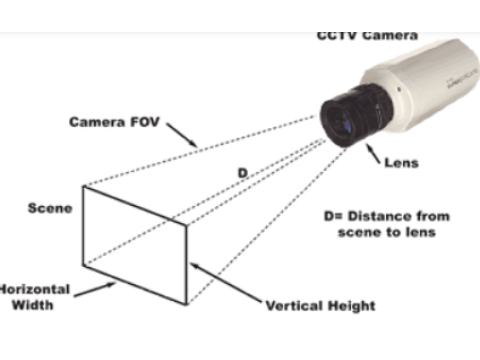Surveillance Camera Angle & Field of View Calculator
Calculate Your Camera’s Coverage Area with Precision
Monitoring efficiency begins with understanding your camera's viewing capabilities. Whether you're designing a security system or evaluating an existing camera, knowing the angle of view and coverage area is essential.
Inputs for Calculation
The following parameters are required to calculate the viewing angles and zone of observation:
- Matrix Format: Standard sizes include 1/3", 1/4", etc.
- Aspect Ratio: Commonly 4:3 or 16:9.
- Focal Length (mm): Found in camera specifications.
- Object Distance (meters): Distance from the camera to the observed area.
Results:
Angle of View
- Horizontal Field of View: 0°
- Vertical Field of View: 0°
Observation Zone Dimensions
- Horizontal Coverage: 0 meters
- Vertical Coverage: 0 meters
These results can help you position the camera for optimal performance in capturing crucial details.
How to Use the Calculator
- Enter Camera Specifications: Input the matrix format, aspect ratio, and focal length.
- Specify Observation Distance: Add the distance to the monitored area for a detailed zone calculation.
- Review Results: Use the calculated angles and dimensions to plan camera placement effectively.
Applications of Viewing Angle and Zone Calculations
Knowing the camera's coverage area is critical for:
- Identifying Faces: Horizontal coverage ≤ 1.8 meters.
- Reading License Plates: Horizontal coverage ≤ 3.6 meters.
- Recognizing Individuals: Horizontal coverage ≤ 4.5 meters.
- Detecting Human Presence: Horizontal coverage ≤ 18 meters.
Considerations for Accuracy
- Matrix Size Variability: Actual matrix dimensions may differ slightly from manufacturer claims.
- Dynamic Matrix Zones: Some IP cameras adjust matrix coverage based on settings.
Enhance Your Setup
If you're designing a comprehensive surveillance system, you might also benefit from tools to calculate focal lengths or optimize your DVR storage.
Explore additional resources for advanced surveillance planning.

